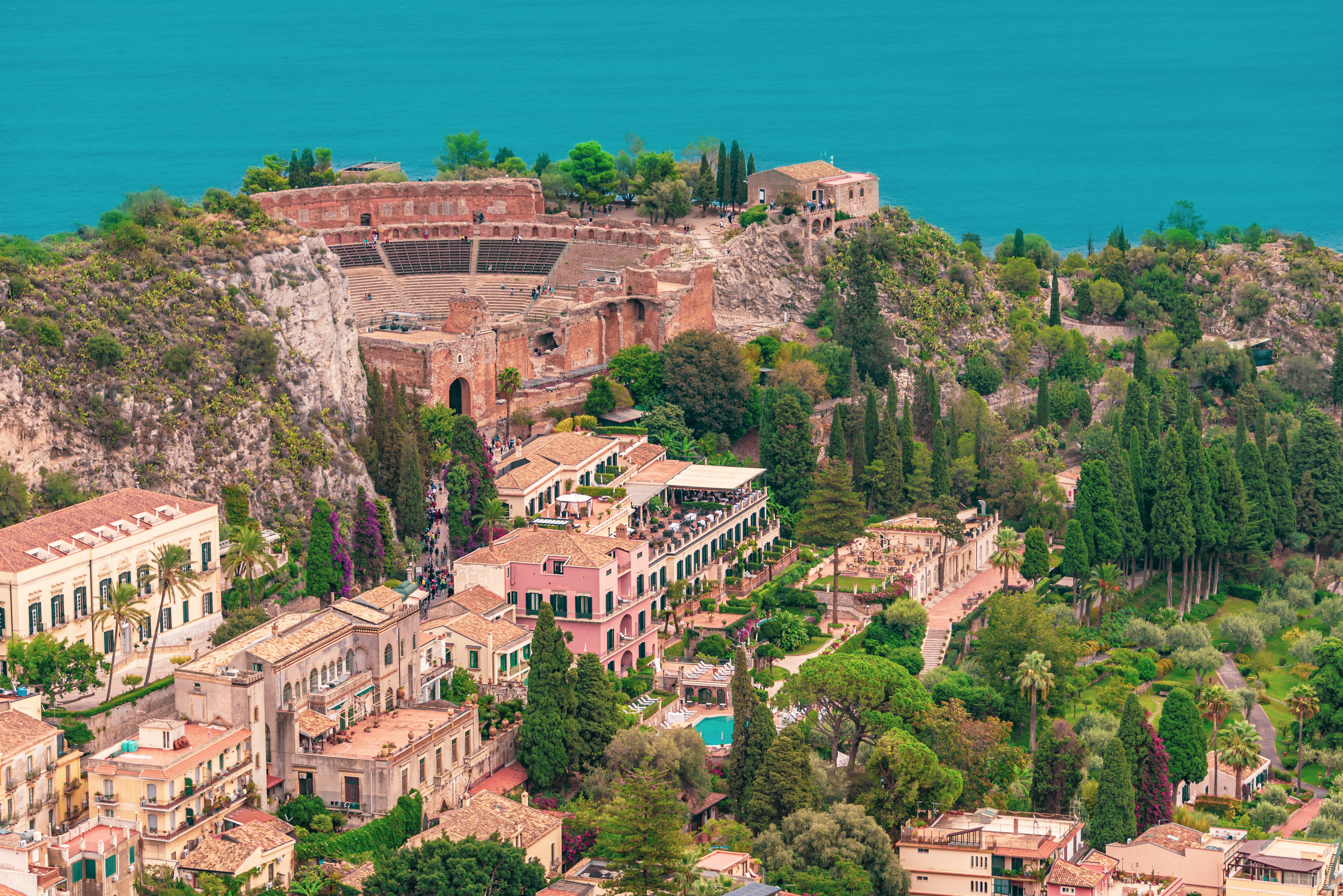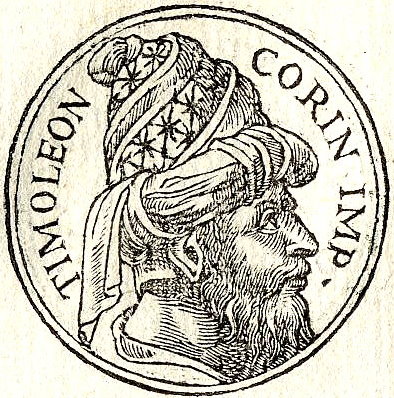|
344 BC
__NOTOC__ Year 344 BC was a year of the pre-Julian Roman calendar. At the time it was known as the Year of the Consulship of Rutilus and Torquatus (or, less frequently, year 410 ''Ab urbe condita''). The denomination 344 BC for this year has been used since the early medieval period, when the Anno Domini calendar era became the prevalent method in Europe for naming years. Events By place Persian Empire * The king of Caria, Idrieus, dies, leaving the Persian satrapy, by his will, to his sister Ada, to whom he was married. Greece * Philip II of Macedon besieges Perinthus, which had defied him and was inclining towards his opponents the Athenians, the Perinthian's allies Byzantium and the Achaemenid Empire support Perinthus in their defence of the city. * Philip divides his army, leaving one part to besiege Perinthus and taking the other to besiege Byzantium. * The Athenian statesman, Demosthenes, travels to Peloponnesus, in order to detach as many cities as possible fr ... [...More Info...] [...Related Items...] OR: [Wikipedia] [Google] [Baidu] |
Roman Calendar
The Roman calendar was the calendar used by the Roman Kingdom and Roman Republic. Although the term is primarily used for Rome's pre-Julian calendars, it is often used inclusively of the Julian calendar established by Julius Caesar in 46 BC. According to most Roman accounts, #Romulus, their original calendar was established by their Roman legend, legendary list of kings of Rome, first king Romulus. It consisted of ten months, beginning in spring with March and leaving winter as an unassigned span of days before the next year. These months each had 30 or 31 days and ran for 38 nundinal cycles, each forming a kind of eight-day weeknine days inclusive counting, counted inclusively in the Roman mannerand ending with religious rituals and a Roman commerce, public market. This fixed calendar bore traces of its origin as an observational calendar, observational lunar calendar, lunar one. In particular, the most important days of each monthits kalends, nones (calendar), nones, a ... [...More Info...] [...Related Items...] OR: [Wikipedia] [Google] [Baidu] |
Second Philippic
The "Second Philippic" is an oration that was delivered by the Athenian statesman and orator Demosthenes between 344–343 BC. The speech constitutes the second of the four philippics the orator is said to have delivered. Historical background In 344 BC, Demosthenes barnstormed Peloponnese,Demosthenes,''Second Philippic''19 in order to detach as many cities as possible from Macedon's influence. Nonetheless, his mission mainly failed, since most of the Peloponnesians saw Philip as the guarantor of their continued freedom and independence.T. Buckley, ''Aspects of Greek History 750-323 BC'', 480. They did not consider that the freedom of Greece was directly linked with the Athenian power, especially as the Athenians were allies of the Spartans. Thereby, Philip and certain Peloponnesian cities, including Argos, Messinia and Arcadia, sent a joint embassy to Athens to express their grievances. Athens' position was tough, since they wanted to keep their friendship with Sparta, but, ... [...More Info...] [...Related Items...] OR: [Wikipedia] [Google] [Baidu] |
Aristotle
Aristotle (; 384–322 BC) was an Ancient Greek philosophy, Ancient Greek philosopher and polymath. His writings cover a broad range of subjects spanning the natural sciences, philosophy, linguistics, economics, politics, psychology, and the arts. As the founder of the Peripatetic school of philosophy in the Lyceum (classical), Lyceum in Athens, he began the wider Aristotelianism, Aristotelian tradition that followed, which set the groundwork for the development of modern science. Little is known about Aristotle's life. He was born in the city of Stagira (ancient city), Stagira in northern Greece during the Classical Greece, Classical period. His father, Nicomachus (father of Aristotle), Nicomachus, died when Aristotle was a child, and he was brought up by a guardian. At around eighteen years old, he joined Plato's Platonic Academy, Academy in Athens and remained there until the age of thirty seven (). Shortly after Plato died, Aristotle left Athens and, at the request ... [...More Info...] [...Related Items...] OR: [Wikipedia] [Google] [Baidu] |
Carthage
Carthage was an ancient city in Northern Africa, on the eastern side of the Lake of Tunis in what is now Tunisia. Carthage was one of the most important trading hubs of the Ancient Mediterranean and one of the most affluent cities of the classical world. It became the capital city of the civilization of Ancient Carthage and later Roman Carthage. The city developed from a Phoenician colony into the capital of a Punic people, Punic empire which dominated large parts of the Southwest Mediterranean during the first millennium BC. The legendary Queen Elissa, Alyssa or Dido, originally from Tyre, Lebanon, Tyre, is regarded as the founder of the city, though her historicity has been questioned. In the myth, Dido asked for land from a local tribe, which told her that she could get as much land as an oxhide could cover. She cut the oxhide into strips and laid out the perimeter of the new city. As Carthage prospered at home, the polity sent colonists abroad as well as magistrates to rule t ... [...More Info...] [...Related Items...] OR: [Wikipedia] [Google] [Baidu] |
Hicetas (tyrant Of Syracuse)
Hicetas (Greek: or ) was tyrant of Syracuse from 288-279 BC. He rose to power following the death of Agathocles of Syracuse. He defeated his rival to the west, Phintias of Agrigentum, in 285 BC, but was badly defeated by the Carthaginians in 284 BC, and was overthrown in 279 BC. A large gold coinage produced during his final days in power survives. Life In 289 BC Menon assassinated Agathocles, the king of Syracuse and had his grandson, Archagathus, put to death. Then he assumed command of the army with which Archagathus had been besieging Aetna and led it to attack Syracuse. In response to this, the Syracusans sent Hicetas against him with a considerable army. Menon allied with the Carthaginians and forced the Syracusans to make peace. At around the same time, there was a revolution at Syracuse which led to the expulsion of the Campanian mercenaries, who became known as the Mamertines, but it is unclear what role Hicetas himself played in this. Probably in 288/7 BC Hicetas secure ... [...More Info...] [...Related Items...] OR: [Wikipedia] [Google] [Baidu] |
Taormina
Taormina ( , , also , ; ) is a ''comune'' (municipality) in the Metropolitan City of Messina, on the east coast of the island of Sicily, Italy. Taormina has been a tourist destination since the 19th century. Its beaches on the Ionian Sea, including that of Isola Bella, are accessible via an aerial tramway built in 1992, and via highways from Messina in the north and Catania in the south. On 26–27 May 2017 Taormina hosted the 43rd G7 summit. History The history of Taormina dates back to before Ancient Greece established its first colony on Sicily in 734 BCE in Magna Graecia. After the fall of the Western Roman Empire, Taormina continued to rank as one of the more important towns of the island. Taormina followed the history of Sicily in being ruled by successive foreign monarchs. After the Italian unification, Taormina began to attract well-off tourists from northern Europe, and it became known as a welcoming haven for gay men and artists. Main sights The present town ... [...More Info...] [...Related Items...] OR: [Wikipedia] [Google] [Baidu] |
Sicily
Sicily (Italian language, Italian and ), officially the Sicilian Region (), is an island in the central Mediterranean Sea, south of the Italian Peninsula in continental Europe and is one of the 20 regions of Italy, regions of Italy. With 4.7 million inhabitants, including 1.2 million in and around the capital city of Palermo, it is both the largest and most populous island in the Mediterranean Sea. Sicily is named after the Sicels, who inhabited the eastern part of the island during the Iron Age. Sicily has a rich and unique culture in #Art and architecture, arts, Music of Sicily, music, #Literature, literature, Sicilian cuisine, cuisine, and Sicilian Baroque, architecture. Its most prominent landmark is Mount Etna, the tallest active volcano in Europe, and one of the most active in the world, currently high. The island has a typical Mediterranean climate. It is separated from Calabria by the Strait of Messina. It is one of the five Regions of Italy#Autonomous regions with s ... [...More Info...] [...Related Items...] OR: [Wikipedia] [Google] [Baidu] |
Timoleon
Timoleon ( Greek: Τιμολέων), son of Timodemus, of Corinth (–337 BC) was a Greek statesman and general. As a brilliant general, a champion of Greece against Carthage, and a fighter against despotism, he is closely connected with the history of Sicily, especially Syracuse. Early life Timoleon was a member of the Corinthian oligarchy. In the mid 360s BC, Timophanes, the brother of Timoleon, took possession of the acropolis of Corinth and effectively made himself tyrant of the city. In response, Timoleon, who had earlier heroically saved his brother's life in battle, and after repeatedly pleading with him to desist, became involved in the assassination of Timophanes. Most Corinthians approved his conduct as patriotic; however, the tragic occurrence, the actual fratricide, the curses of his mother, and the indignation of some of his fellow citizens, drove him into a self-imposed early withdrawal from politics and civic life for twenty years. Sicily Because of inner s ... [...More Info...] [...Related Items...] OR: [Wikipedia] [Google] [Baidu] |
Dionysius II Of Syracuse
Dionysius the Younger (, 343 BC), or Dionysius II, was a Greek politician who ruled Syracuse, Sicily from 367 BC to 357 BC and again from 346 BC to 344 BC. Biography Dionysius II of Syracuse was the son of Dionysius the Elder and Doris of Locri. When his father died in 367 BC, Dionysius, who was at the time under thirty years old, and completely inexperienced in public affairs, inherited the supreme power and began ruling under the supervision of his uncle, Dion, whose disapproval of the young Dionysius's lavishly dissolute lifestyle compelled him to invite his teacher Plato to visit Syracuse. Together they attempted to restructure the government to be more moderate, with Dionysius as the archetypal philosopher-king (see the ''Seventh Letter'' of Plato). However, under the influence of opponents of Dion's reforms, Dionysius conspired with the historian Philistus and banished his uncle, taking complete power in 366 BC. Without Dion, Dionysius's rule became increasingly unpopular ... [...More Info...] [...Related Items...] OR: [Wikipedia] [Google] [Baidu] |
Tyrant
A tyrant (), in the modern English usage of the word, is an absolute ruler who is unrestrained by law, or one who has usurped a legitimate ruler's sovereignty. Often portrayed as cruel, tyrants may defend their positions by resorting to repressive means. The original Greek term meant an absolute sovereign who came to power without constitutional right, yet the word had a neutral connotation during the Archaic and early Classical periods. However, Greek philosopher Plato saw ''tyrannos'' as a negative form of government, and on account of the decisive influence of philosophy on politics, deemed tyranny the "fourth and worst disorder of a state."Plato, ''The Republic'' Book VIII The philosophers Plato and Aristotle defined a tyrant as a person who rules without law, using extreme and cruel methods against both his own people and others. The ''Encyclopédie'' defined the term as a usurper of sovereign power who makes "his subjects the victims of his passions and unjust ... [...More Info...] [...Related Items...] OR: [Wikipedia] [Google] [Baidu] |




